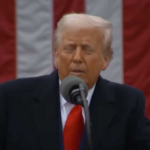A recent survey has unveiled a growing sense of optimism among small to medium-sized enterprises (SMEs) in the UK, although many businesses are urging the government to take action to alleviate the burdens stemming from post-Brexit trade requirements. The survey revealed that nearly three-quarters (74%) of SMEs are confident about their growth prospects over the next three years, with 36% of respondents describing themselves as “very confident”—a notable increase from just 22% the previous year.
Despite this positive outlook, businesses are calling for changes that could simplify international trade and enhance their growth potential. A significant concern highlighted in the survey is the complexity of post-Brexit trade regulations, with 31% of businesses requesting the government to reduce red tape associated with customs procedures, trading licenses, and mutual recognition of professional standards and qualifications across Europe.
Since the UK’s departure from the European Union in January 2020, businesses have faced new challenges, including navigating additional border controls, customs declarations, and health certifications. These changes have resulted in increased costs and extended timeframes for exporting goods. The delayed implementation of certain aspects of the Windsor Framework—designed to modify the Northern Ireland Protocol—has added to the uncertainty, with new customs processes for business-to-business parcels postponed from October 2024 to March 2025.
The survey also pointed to the need for improved mutual recognition of standards and qualifications between the UK and the EU, which would facilitate the movement of professionals across borders and support business expansion and collaboration. Although the EU-UK Trade and Cooperation Agreement includes provisions for Mutual Recognition Agreements (MRAs) in specific sectors, progress has been slow. So far, Brussels has concluded only one such agreement, with Canada, to streamline the recognition of architects’ qualifications. In contrast, the UK has secured MRAs with several non-EU countries, including New Zealand, to enable mutual recognition for auditors.
Labour’s election manifesto acknowledges the importance of enhancing mutual recognition with the EU, indicating that strengthening the UK’s trading relationships could be a priority for the next government.
In addition to calls for regulatory relief, 25% of businesses expressed a desire for greater government support in locating international customers, business partners, and suppliers. Recruitment challenges were also emphasized, with 24% seeking assistance in sourcing suitable talent within the UK.
These findings underscore the ongoing challenges faced by businesses in the post-Brexit landscape, with many calling for government action to help them grow and remain competitive on the global stage.









